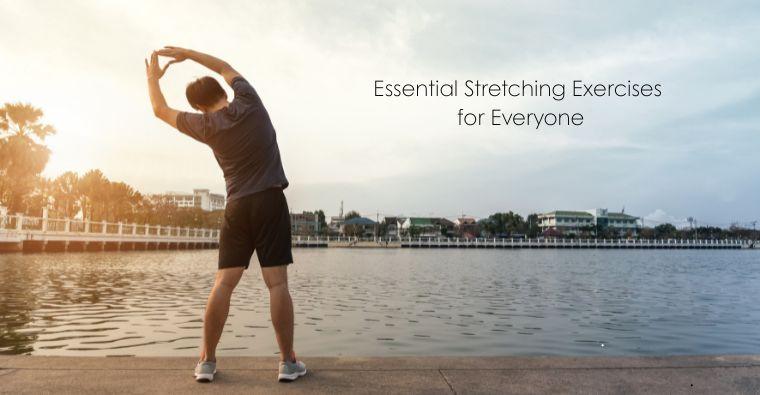Creating a sustainable fitness plan that fits into your lifestyle and meets your goals is key to long-term success. This guide explores the importance of regular exercise and provides practical tips for developing a fitness routine that you can stick with.
The Benefits of Regular Exercise
1. Improves Cardiovascular Health
Engaging in regular physical activity strengthens the heart and improves circulation. This reduces the risk of heart disease, lowers blood pressure, and helps maintain healthy cholesterol levels. Activities such as walking, jogging, and cycling are particularly beneficial for cardiovascular health.
2. Boosts Mental Health
Exercise is known to enhance mental well-being by releasing endorphins, the body's natural mood lifters. Regular physical activity can reduce symptoms of depression and anxiety, improve sleep quality, and increase overall energy levels. It also helps with cognitive functions and can reduce the risk of cognitive decline.
3. Supports Weight Management
Combining regular exercise with a balanced diet is crucial for effective weight management. Exercise burns calories, builds muscle, and increases metabolism, helping to maintain a healthy weight or achieve weight loss goals. Activities like strength training and aerobic exercises are particularly effective for this purpose.
4. Enhances Musculoskeletal Health
Regular physical activity strengthens muscles, bones, and joints. This can prevent or alleviate conditions such as osteoporosis and arthritis. Weight-bearing exercises, such as resistance training and walking, are especially important for maintaining bone density and muscle strength.
5. Promotes Better Sleep
Physical activity can help regulate sleep patterns and improve sleep quality. Regular exercise helps you fall asleep faster and enjoy deeper sleep. It is recommended to avoid vigorous exercise close to bedtime, as it may have the opposite effect.
Creating a Sustainable Fitness Routine
1. Set Clear Goals
Define what you want to achieve with your exercise routine. Whether it’s improving cardiovascular health, building muscle, losing weight, or simply staying active, setting specific, measurable goals will help you stay motivated and track your progress.
2. Choose Activities You Enjoy
Select exercises that you find enjoyable to increase the likelihood of sticking with your routine. Whether it’s dancing, swimming, hiking, or cycling, finding activities you love will make working out feel less like a chore and more like a fun part of your day.
3. Start Slow and Gradually Increase Intensity
If you’re new to exercise or returning after a break, start with moderate activities and gradually increase the intensity and duration of your workouts. This approach helps prevent injuries and allows your body to adapt to the new demands.
4. Create a Schedule
Consistency is key to forming a sustainable fitness routine. Set aside specific times during the week for exercise and treat these appointments as non-negotiable. Having a set schedule helps establish a routine and makes it easier to incorporate exercise into your daily life.
5. Mix It Up
Incorporate a variety of exercises to keep your routine interesting and to work different muscle groups. Combining cardiovascular exercises, strength training, flexibility workouts, and balance exercises helps ensure a well-rounded fitness regimen and reduces the risk of boredom and plateaus.
6. Listen to Your Body
Pay attention to how your body responds to exercise. If you experience pain or excessive fatigue, it may be a sign that you need to adjust your routine. Allow time for rest and recovery to prevent overtraining and reduce the risk of injuries.
7. Set Realistic Expectations
Understand that progress takes time. Set achievable milestones and celebrate your successes along the way. Avoid comparing your progress to others and focus on your personal journey.
8. Incorporate Social Support
Exercise with friends, family, or join a fitness group to stay motivated. Social support can provide encouragement, accountability, and make working out more enjoyable.
9. Track Your Progress
Keep a workout journal or use fitness apps to track your activities, progress, and achievements. Monitoring your progress helps you stay motivated and make necessary adjustments to your routine.
10. Prioritize Flexibility and Adaptability
Life can be unpredictable, and it’s essential to be flexible with your routine. If you miss a workout or face obstacles, don’t get discouraged. Adapt your schedule as needed and get back on track as soon as possible.
Regular exercise is vital for maintaining physical and mental health. By understanding its benefits and implementing practical strategies for creating a sustainable fitness routine, you can make exercise a consistent and enjoyable part of your life. Remember to set clear goals, choose activities you enjoy, and remain flexible in your approach. With dedication and perseverance, you can achieve and maintain a healthy, active lifestyle that enhances your overall well-being.




